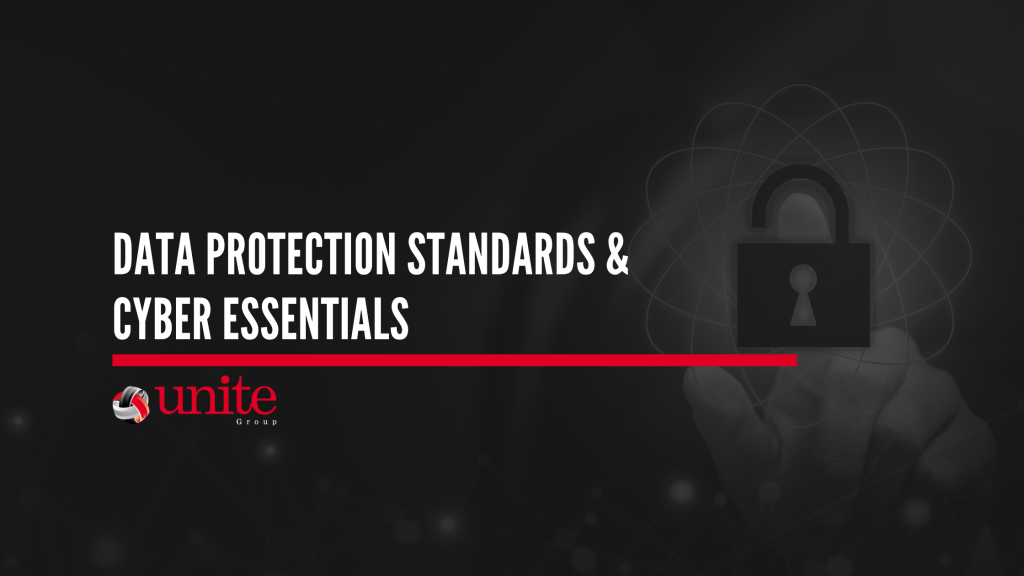
Businesses rely on data more than ever, but with that comes the challenge of keeping it secure. Cyber threats are growing in complexity, and a single breach can lead to financial losses, reputational damage, and legal trouble. To stay protected, companies must go beyond basic compliance and take proactive steps to strengthen their cybersecurity. One of the most effective ways to do this is by gaining Cyber Essentials certification.
Why Data Protection Standards Matter
Data breaches and cyber-attacks are becoming more sophisticated, targeting businesses across industries. A single vulnerability can lead to compromised customer information, financial fraud, or even operational shutdowns. This makes adhering to data protection standards a necessity rather than an option.
For UK businesses, ensuring compliance with regulations such as the General Data Protection Regulation (GDPR) is paramount. However, compliance alone is not enough—proactive security measures help mitigate risks and enhance customer trust. Implementing robust data protection standards not only reduces the likelihood of cyber-attacks but also ensures that sensitive business and customer information is safeguarded against emerging threats.
Cyber Essentials: A Key Step in Strengthening Cyber Security
Cyber Essentials is a government-backed scheme designed to help businesses implement essential cybersecurity measures. It provides a structured framework to protect against 80% of common cyber threats, such as phishing attacks, malware, and unauthorised access.
There are two levels of certification:
- Cyber Essentials – A self-assessment certification that ensures basic security controls are in place.
- Cyber Essentials Plus – A more rigorous assessment, including external vulnerability scans and on-site evaluations.
Key Areas Covered by Cyber Essentials
Cyber Essentials outlines fundamental security practices that businesses should adopt to reduce risks. These include:
- Access Control – Restricting admin account access to authorised personnel only.
- Software Updates – Ensuring all systems run on up-to-date software to prevent vulnerabilities.
- Firewalls & Routers – Creating a secure network barrier to monitor and control incoming traffic.
- Secure Configuration – Implementing security settings and removing unused accounts or software.
- Malware Protection – Deploying anti-malware solutions to prevent viruses and cyber threats.
Strengthening Business Resilience with Data Protection Standards
By integrating data protection standards into daily operations, businesses can significantly lower their exposure to cyber risks. Cybercriminals often exploit weaknesses such as outdated software, poor password management, or misconfigured security settings. Implementing Cyber Essentials ensures that these vulnerabilities are addressed before they become entry points for attacks.
Furthermore, having a recognised cybersecurity certification strengthens a company’s reputation. Clients, partners, and stakeholders are more likely to trust organisations that prioritise security. In some industries, holding a Cyber Essentials certification is a requirement for securing contracts, particularly when working with government bodies and defence sectors.
Businesses that fail to adhere to strong data protection standards risk severe consequences, from financial losses to regulatory fines. In a time where cybercrime is a growing concern, companies cannot afford to overlook their security responsibilities.
The Business Benefits of Cyber Essentials Certification
Beyond strengthening cybersecurity, gaining Cyber Essentials certification brings multiple advantages:
- Prevents up to 80% of cyber threats – Reducing the risk of data breaches and financial loss.
- Enhances business reputation – Demonstrates to clients and partners that you take cybersecurity seriously.
- Unlocks new business opportunities – Certification is often a prerequisite for contracts, especially with government and defence sectors.
- Supports GDPR compliance – Strengthens security measures aligned with data protection standards and regulations.
- Provides peace of mind – Ensures you have fundamental cybersecurity defences in place.
Why Choose The Unite Group for Cyber Essentials Certification?
With a strong track record in IT security and business technology solutions, The Unite Group simplifies the certification process. Our team of certified practitioners assists businesses in navigating Cyber Essentials, from initial audits to certification issuance.
Unlike many providers, The Unite Group offers fixed-cost support, making cybersecurity accessible and affordable for businesses of all sizes. Our hands-on approach ensures that organisations are fully prepared before beginning the certification process, reducing the risk of delays or failed assessments.
We understand that every business has unique security needs, which is why we provide tailored guidance to help you implement and maintain data protection standards effectively. From assessing existing vulnerabilities to offering strategic solutions, we ensure your business is equipped with the right defences.
Investing in data protection standards is crucial for safeguarding business continuity, customer trust, and regulatory compliance. Achieving Cyber Essentials certification is a practical step towards strengthening your organisation’s security posture. It not only helps prevent cyber-attacks but also demonstrates a commitment to best practices in data protection.
To learn more about Cyber Essentials and how The Unite Group can assist your business, visit our Cyber Essentials page or contact our team today.
